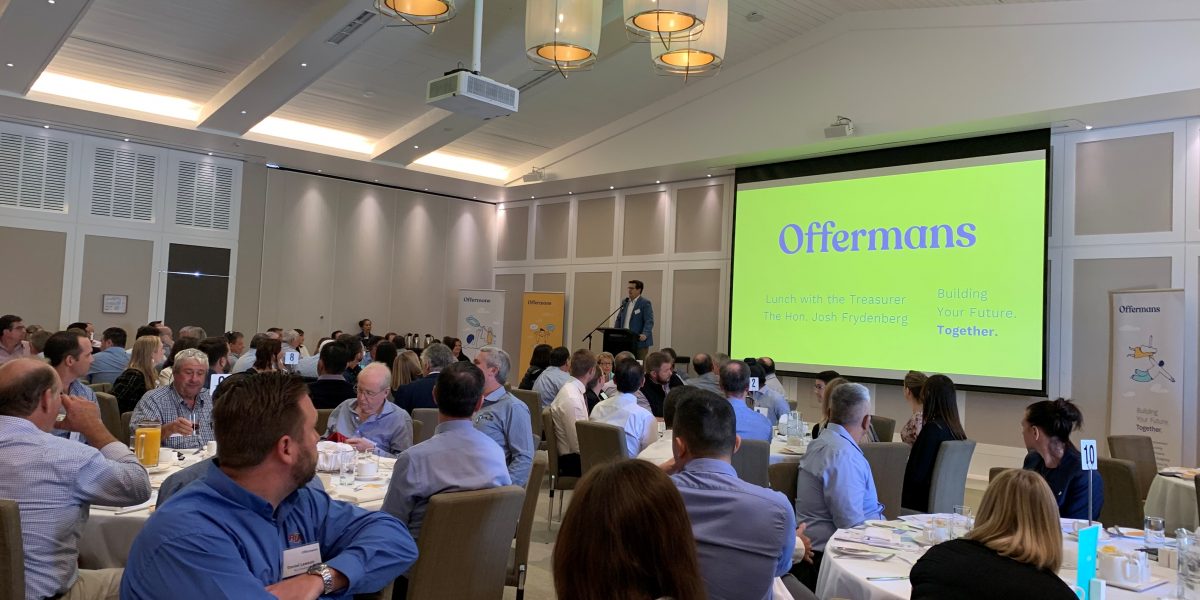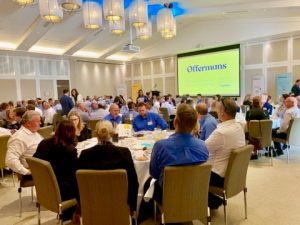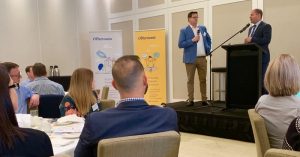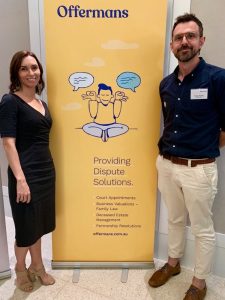
“It is not the strongest of the species that survives, nor the most intelligent, but the one most responsive to change.”
The world has changed enormously since our firm first started. The changes to society have translated directly into changes in business. Not just the businesses of our clients, but also the businesses we own and work in. Professional service delivery continues to fight hard against technological and sociological disruption but there is only so long you can hold back the tide.
There is a great quote which I think encapsulates where professional service Firms, and indeed all businesses find themselves: “A business that doesn’t change is a business that is going to die.”
From previous feedback at our lunches, it seemed that some of you wanted to hear more about what we do. So I thought there’s no better time than the present to give your war story about a turnaround strategy that we worked on with a local business. This business been in operation for 20 years, was well situated in a number of regions and, for the majority of those 20 years had provided very strong returns to its owners. It sailed through the GFC and continued to expand both its geographic footprint and size, with staff numbers growing bigger each year.
Like a well worn cliché, the owners started to take their eyes off the prize and a series of personal issues distracted them from their core which was running their business.
Over a period of 18 months to 2 years the drivers to their workflow disappeared and the phones slowly stop ringing as frenetically as they used to.
Unfortunately for that business, because of the pipeline of work and the timeline for projects, everyone was still busy and the owners didn’t really appreciate the slowdown in their market to the extent that they should have.
As sure as night follows day, the cash flow became constrained and discussions turn to when the market will recover. That recovery never happened, and the cash became tighter and tighter.
Dennis I and I became engaged in the recovery effort and we began to take stock of the lay of the land.



The first questions that we asked was; “is there a market for the services this business can provide? Should it continue? Was it just this business in a slump or was the industry truly in the doldrums?”
Luckily for all concerned, a huge potential market was identified with the issues being how to reconnect with that market and how to survive until that connection takes hold?
Dennis’ skills came to the fore in looking at where the cash flow was leaking.
Staff numbers needed to be reduced and the hard discussion had with the owners about not replacing staff as they left or even making staff redundant if they weren’t meeting expectations.
Productivity efficiency became a focus on how to make the most with less. Systems and process were scrutinized refined and enforced.
The business had debts with key suppliers that needed to be repaid over time and arrangements made and entered into to relieve pressure on the cash flow.



Many discussions were held with the business’ bankers. Times had changed and despite the many many years of good returns and no defaults, the bank was sympathetic to their needs, but could find every excuse not to provide meaningful assistance.
The bank’s reluctance to taking risk was governed by new lending requirements for small business but also their reluctance to engage in anything that may expose them to a failure or PR risk. Extra funds from the bank to ride out the downturn were off the table, so the grind was on.
Like many businesses caught in a downturn, this business had a very large floor plate in an expensive rental location, based on a much higher headcount at the time that the leases entered into.
With the reduction in staff numbers, the lease exceeded the needs of the business considerably and represented a large cash burn.
We helped negotiate a sublease of their existing lease to a more appropriately sized premises which allowed the business to reduce its leasing costs by 75%. The move also allowed the practice to reconnect with staff in new premises to hone their culture.



One of the major issues with a turnaround of any business is dealing with the issue of culture.
Cutting costs is the easiest aspect of any turnaround assignment and from our experience, in any business that is suffering business constraint, the first casualty is the culture of the business.
Stressed owners mean stressed staff. Stressed staff are less inclined to go that extra mile which in turn ultimately impacts upon the quality of the product being produced by the business. In a vicious cycle, once a business gets caught in that place it is very difficult to change the mindset of everyone.
The change in culture was instrumental to the turnaround of that business. We took the owners and staff off-site and Carl Valentine from PVW led an exceptionally frank and forthright review by staff and owners of not only what was going wrong but what everyone wanted into the future.
From that meeting a common goal was arrived at. A mission and reason for going to work was discovered that everyone shared.
The one aspect that all levels of the business understood and connected to, was the fact that everything they did, helped people.
That connection with helping people to rebuild and to help themselves, became the cornerstone or foundation upon which the rebuild of the business was built on.
In working with the owners, we could see that the connection to the market in which the business operated had been lost. The message of what the staff and the business did, to help people, was swamped in the technical aspect of the services that business provided.
We had helped find their “Why”
The next step in this turnaround strategy was taking this mission and figuring out how to re-communicate it properly.
We were incredibly lucky to find two great firms that could take the owners visions and thoughts and com
bine it with the underlying mission provided by the staff and distill and capture the essence of what drove that business.
Rebecca Barr from BB communications sat down with the owners, listened to what they said and started to redraft the way they communicated to the outside world. She introduced the practice to Travis Farley at TBD design to talk about how Bec’s message could be captured graphically in website and branding change. Bec and Travis worked a miracle in my humble opinion in capturing and illustrating what that firm stands for and how they want to go forward.



It’s up to that business to use the new messaging effectively but having the right tool for the job is absolutely essential.
That practice now has a cutting-edge website brand and message that n
o one in their space comes even close to. The success of that business going forward will be very much thanks to the tremendous work at TBD design and BB communications.
For anyone that hasn’t yet joined the dots, the business I am talking about is obviously ours. The business formerly known as “Offermans Partners”.
Like many small businesses in Townsville, Dennis and I found ourselves in the wrong part of the business cycle at the wrong time. But success this is about not only how you handle the good times but how you grind out the tough ones.
Our Firm was guilty of denying that our long held understanding of the market and its participants were outdated and not working as well as they could be.
We needed to change the way that we connected to small business owners and show that we stood ready to help the people behind the businesses that needed us. Bek and Travis have helped us with that process.



The biggest challenges we all face is how to sell the value of an intangible such as the intellectual property we bring to transaction.
The tension between price and value has never been more relevant.
When you buy a new car you’re distracted, at least momentarily, from the purchase price by, the new car smell and feel. Professional services don’t get that buffer.
Despite years of trying, I haven’t been able to crack the formula for the perfume to spray on my invoices when I give them to creditors. The testing for “fees and charges” by Calvin Klein didn’t go so well but the quest goes on.
The challenge of value selling in a traditional insolvency practice adds another complexity, we are the ultimate grudge purchase. Short of purchasing a Coffin, historically we were the last business people wanted to call on.
Many of you in this room have seen first hand when you suggest a client struggling with a business is referred to go and see an insolvency practice to talk about options. They will take the advice of the bloke over the fence, down the pub or the butcher’s cousin before picking up the phone to the business advisor. By then it is usually too late to do anything but measure up the corpse.
The other challenge that we all face in business is the changing way people choose to purchase goods and services. Google has replaced word-of-mouth and the Yellow Pages for nearly all consumers of services.
Again, I defer to the skills of our communications experts and the great product that they have put before you today.
This brings me to another quote, this one by Charles Darwin:
“It is not the strongest of the species that survives, nor the most intelligent, but the one most responsive to change.”
The challenge for our business, and in some respects, many of you here, is how do we respond to the change in the markets we all face? We adapt, and we evolve.
It is our belief that we stand on the cusp of a structural shift in how small business interacts with the broader economy.
Small businesses needs to become more methodical in how it operates if it is subject to a more mature relationship with business credit.
Historically small business operated in a world where finance was tired to residential housing and obtaining working capital, was as easy as drawing against your home loan.
Whilst that may still be the case for some, Banks are now asking the question “How are you going to repay that loan?” The Audacity of them!
The opportunity for business advisers is enormous in providing the know-how and back-office support for business owners to navigate the new economic world.
Dennis and I are extremely lucky. I mean just look at us, we are good looking roosters. In addition to that, we are blessed with living in a city like Townsville with a business community mature enough to respect the skills that we can bring to many types of transactions. Not just the terminal ones.
The branding you see before you today and the product offerings that we are selling to small business is a culmination of a lot of soul-searching and re-evaluating how we can bring our skills into the market in addition to the traditional insolvency appointments. That process started with trying to figure out what is our “why?”
At Offermans we recognised that the very heart of what we do was to help people move forward.
We bought closure and we provided pathways for the future.
We helped employees, creditors, directors, owners and all of their extended networks to find a future from a place that they found themselves in.
That place for many was a horrible and depressing one but didn’t need to be. Our role and our focus is to build their future together.
No matter which of our key services a client utilises whether it is business improvement advice, debt restructuring, a business valuation, or a traditional insolvency appointment. We stand ready to help them Build their future. Together.


